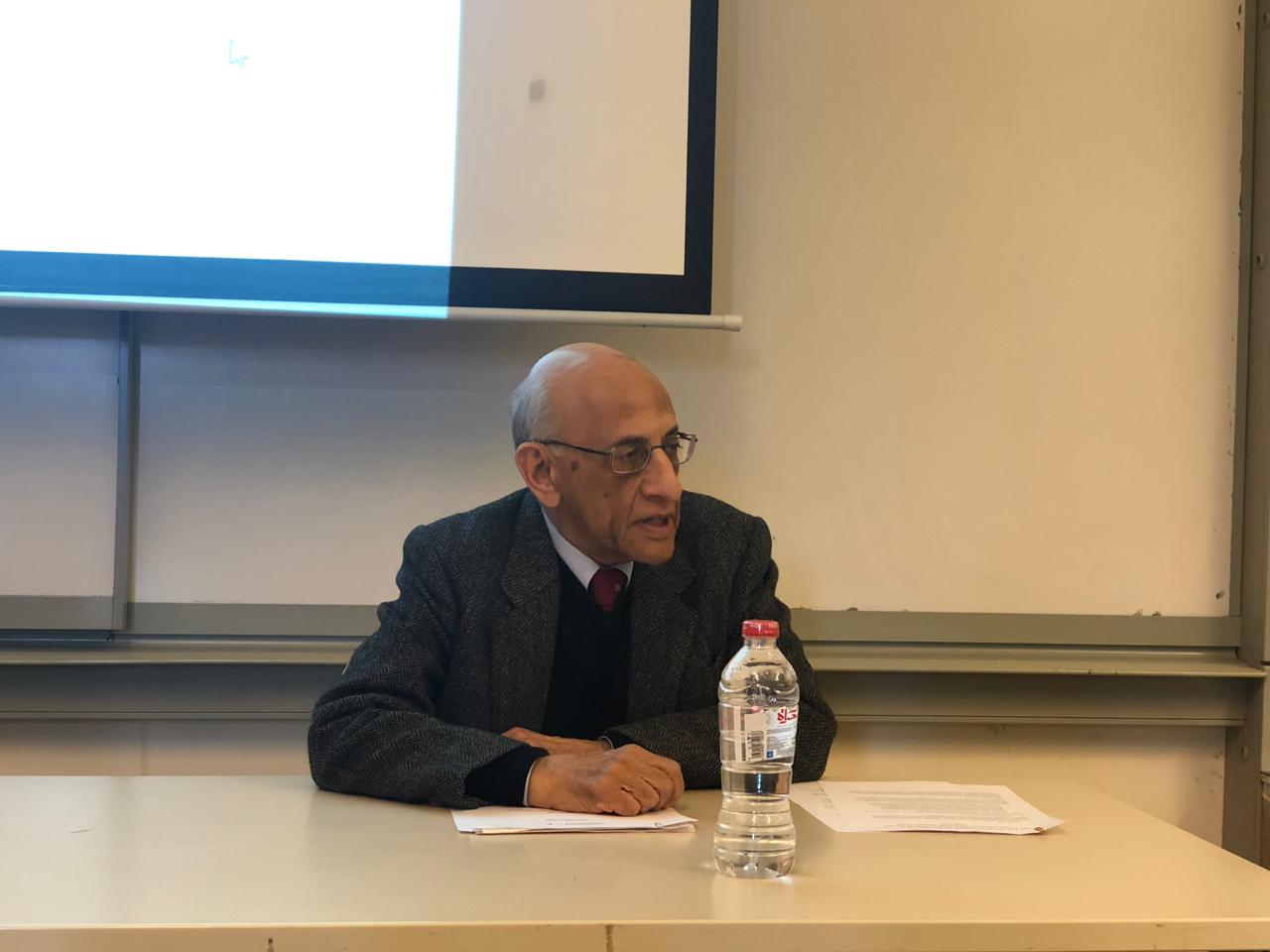Egypt Needs to Catch Up with Asian Economies, says Scholar
By:Sherif El Hakim
@sherifelhakim2
Egypt is capable of becoming an economic powerhouse if policymakers learn from some of their Asian counterparts, author Khaled Ikram told an AUC audience on March 17.
Author of The Political Economy of Reforms in Egypt: Issues and Policymaking Since 1952, Ikram believes that Egypt has not yet reached its full potential.
“The country is capable of so much more. The future is looking bright if the current government avoids the same mistakes as previous regimes,” he said during his talk “The Political Economy of Reforms in Egypt” at Abdul Latif Jameel Hall last week.
One trend which requires immediate reform is Egypt’s water irrigation system which prevents domestic agriculture in some respects and forces the government to import 60 percent of its food, most notably wheat and rice.
This in turn leads to high prices, putting a strain on consumers.
The key then to Egypt’s future success is down to the government reinvesting in the population, improving the country’s trade strategy and diversifying the job market to create opportunities for an ever growing population.
This, he says, will boost Egypt’s Gross Domestic Product (GDP), which in 2018 was 4.8 to 5 percent, according to the World Bank.
That is an encouraging rate, he says, but not enough.
“Egypt’s GDP is increasing annually, however, in Eastern Asian countries the rate is increasing at around double that rate. Therefore, Egypt is being left behind,” Ikram elaborated.
India, for example, had a GDP growth rate of 7.3 per cent in 2018, while Vietnam had 6.8 and Laos 6.9 percent. By comparison, China – the world’s second largest economy – is expecting 6 per cent growth in 2019.
Ikram says a large contributing factor to GDP growth is how much is invested in a country’s private and public sectors. In Egypt that is 20 percent of GDP, while in East Asian countries that figure surges to 35 percent of GDP.
“The Eastern Asian countries are miles ahead of Egypt and the main reason is their willingness to reinvest in their country. There is obviously a trend when you see the most developed countries tend to have the highest investment percentage,” Ikram said.
He also said that rapid GDP growth improves living conditions and quality of life, contributing to helping a country realize its potential.
To illustrate his point, Ikram said that a one percent increase in GDP growth translates into half a percent increase in the employment rate.
But Egypt’s unchecked population boom continues to be a critical factor negatively affecting economic growth.
“The number of jobs being created is not growing at the same rate as the population. The population is growing very rapidly, so it is difficult for the rate of employment to keep up and that is a major problem for Egypt,” he said.
The pattern of population growth became evident after the 1952 revolution, when the government began to subsidize many goods. While that continued, the government was aware that due to population growth, there weren’t enough resources, therefore, the quality of subsidized goods diminished.
Exacerbating these economic trends is Egypt’s comparatively low literacy rate and its poor ranking in innovation.
Egypt currently ranks 95th in world for innovation after moving up 10 spots, according to the 2018 Global Innovation Index (GII) published by the World Intellectual Property Organization (WIPO).
As a result of Egypt’s low ranking in innovation and failure of productivity, the country has been losing market share for its exports.
“Egypt should be looking towards South Korea in terms of exports. The Koreans began to lack natural resources; therefore, they began to import and add value to the product before exporting,” he said.




